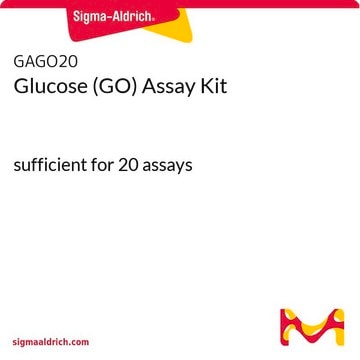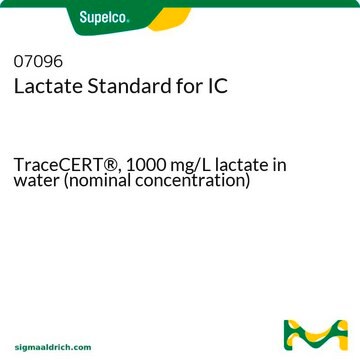MAK329
L-Lactate Assay Kit
sufficient for 100 colorimetric tests
Synonyme(s) :
L-Lactic Acid Assay Kit, Lactate Quantification Kit
About This Item
Produits recommandés
Utilisation
sufficient for 100 colorimetric tests
Entrée
cell
plasma
serum
solution(s) (collagen)
Méthode de détection
colorimetric
Maladie(s) pertinente(s)
endocrinological disorders, diabetes; cancer
Température de stockage
−20°C
Catégories apparentées
Description générale
Application
- Cancer Research
- Diabetes Research
- Endocrinological Disease Research
Caractéristiques et avantages
Simplified Process: Experience a streamlined process with the addition of only a single working reagent and a 20 minute room temperature reaction, reducing complexity and saving valuable time and effort.
Compatibility with High-Throughput Systems: Easily incorporate our kit into high-throughput handling systems, ensuring smooth and accurate processing, enhancing efficiency in your laboratory workflow.
Adéquation
Principe
Autres remarques
Code de la classe de stockage
10 - Combustible liquids
Certificats d'analyse (COA)
Recherchez un Certificats d'analyse (COA) en saisissant le numéro de lot du produit. Les numéros de lot figurent sur l'étiquette du produit après les mots "Lot" ou "Batch".
Déjà en possession de ce produit ?
Retrouvez la documentation relative aux produits que vous avez récemment achetés dans la Bibliothèque de documents.
Les clients ont également consulté
Notre équipe de scientifiques dispose d'une expérience dans tous les secteurs de la recherche, notamment en sciences de la vie, science des matériaux, synthèse chimique, chromatographie, analyse et dans de nombreux autres domaines..
Contacter notre Service technique


